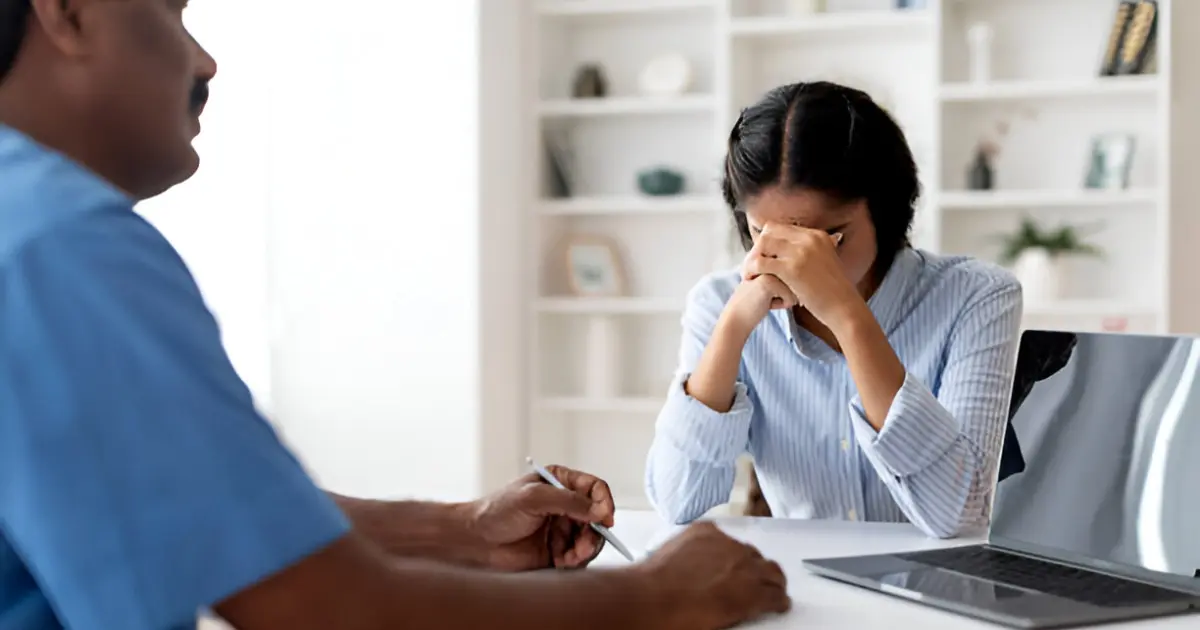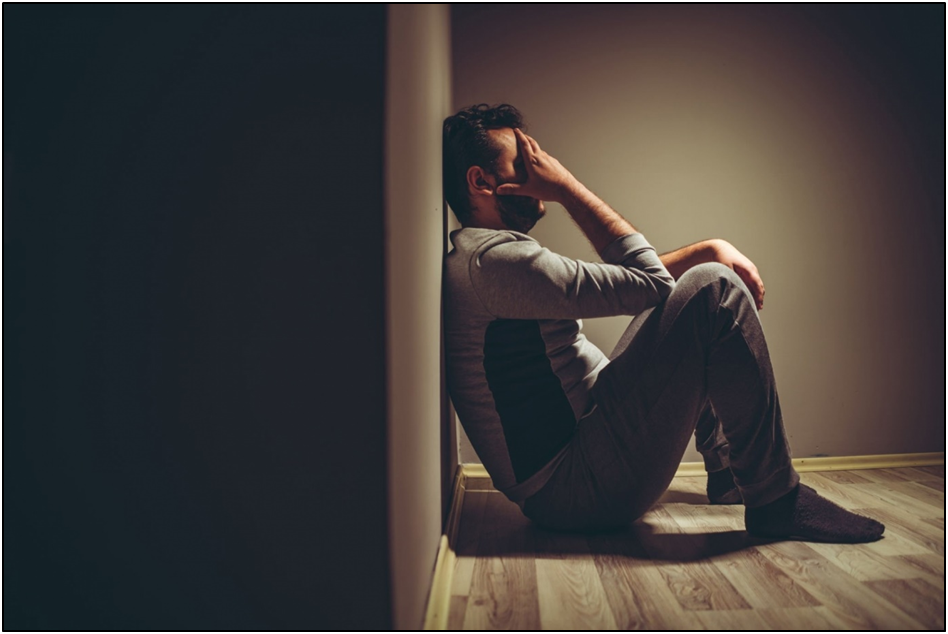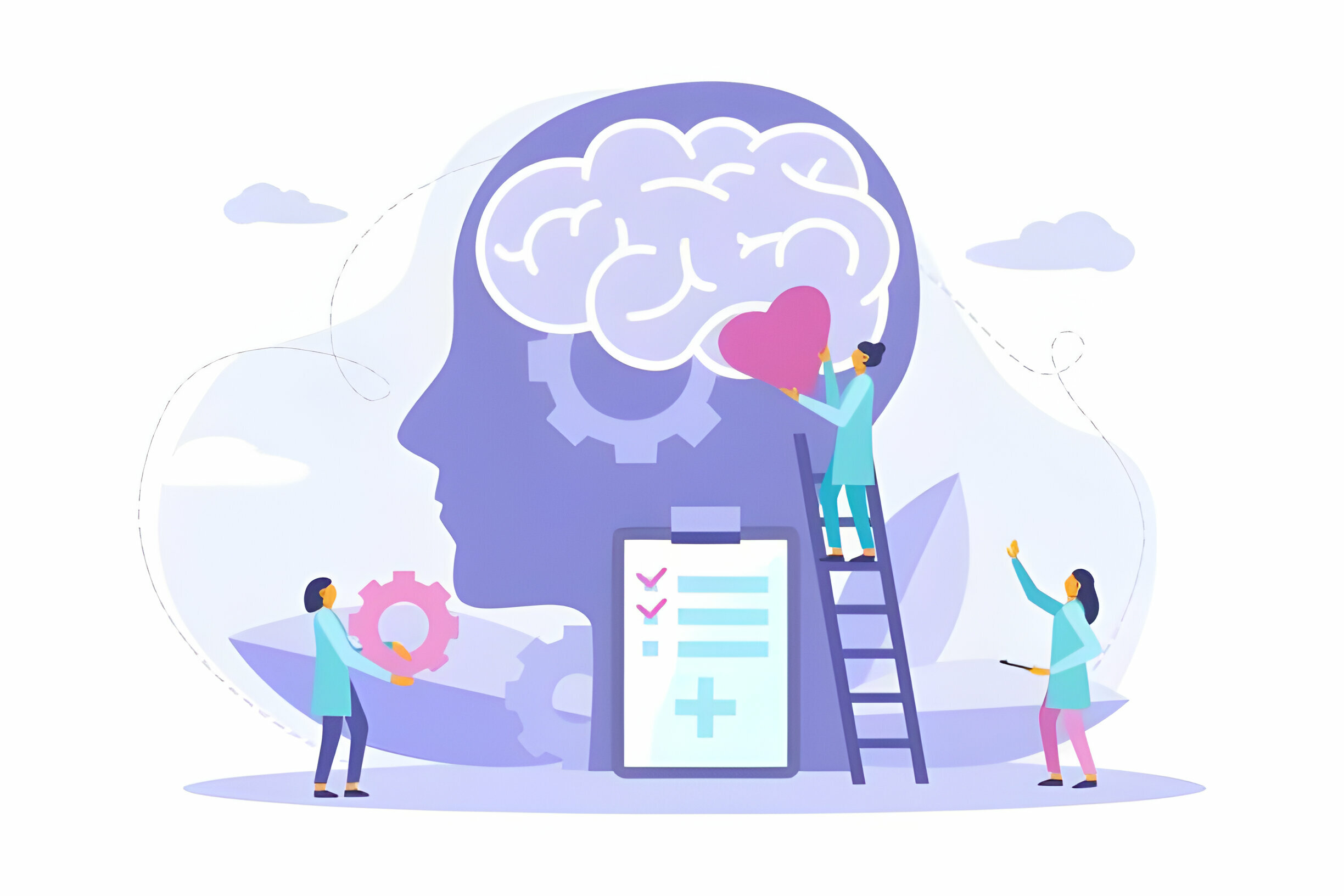Depression is a general and broad term that encompasses a broad range of conditions that affect many individuals across the globe. However, mild cases of sad feelings are quite natural from time to time but if one is overwhelmed and cannot get over the symptoms then he/she should consult a doctor.
Therefore, there should be no hesitation in the Panchkula population to approach an expert in depression psychiatrist. This guide will provide you with the necessary information about the understanding of signs that you need to visit a Depression Doctor in Panchkula and how Vishwas Hospital can be essential on your way to healing.
Understanding Depression
It is not ordinary sadness that can be conquered with some food or relaxation; it is a serious illness. It is a medical illness that involves the entirety of the psychological, social, personal, behavioral, and occupational life of the patient.
Some of the serious signs are – clearly, and present for at least two weeks – persistent sadness, decreased interest in familiar activities, loss of appetite or increased craving for food, and change of sleep-wake cycle. Depression as a disorder has serious effects and if not addressed properly can cause serious impacts such as suicide.
It is very important that one knows the symptoms and reaches out to a Depression Doctor in Panchkula or any qualified doctor when he or she sees any of the symptoms.
 Signs You Should See a Depression Doctor
Signs You Should See a Depression Doctor
Persistent Sadness or Irritability
One of the primary signs that signal depression is being elated or feeling low for an extended duration. It is important to seek help when these feelings persist over two weeks, and consulting a Depression Doctor in Panchkula would be a wise thing to do.
A person can also be a candidate for therapy in case of rigid and unexplained mood swings, where the client is chronically experiencing either deep sorrow or uncontrolled anger.
Loss of Interest in Activities
Another sign of depression is a drastic reduction in the level of interest in favorite things or hobbies when a person loses interest in things previously interesting to him; such a symptom is called anhedonia.
It is another significant disabling symptom as for hobbies, socializing, or daily activities this sign can dramatically lower the quality of life. People suffering from depression in Panchkula can visit a Depression Doctor to mend and ways that can make them feel like living again.
Changes in Appetite and Weight
Psychological disorders such as depression can also affect food choices and consequently a person’s weight. The reduced eating ability would lead to weight loss in some individuals while others will gain weight due to overeating.
All the above change is not just a disease of the physical self but of the inner spirit which requires the help of qualified personnel to handle.
Sleep Disturbances
This means that one can have sleeping disorders such as insomnia or conversely, they can oversleep as a result of depression. Outside of allowing for an infected person to be in the same room as healthy individuals, these sleep disturbances worsen other symptoms and the ability to manage everyday life becomes nearly impossible.
If you are such a person who has a problem with your sleeping pattern if you are either getting poor quality sleep or are oversleeping yet feel you are not refreshed, then it is time to find a Depression Doctor.
Fatigue and Lack of Energy
This is because, when one feels sleepy and lacks energy even after going to bed as a normal human being is supposed to do, then it may be an indication that the person is depressed. This fatigue can hamper normal functioning and living, limitations that may seem small in the grand scheme of things but are a source of constant annoyance.
Seeking help from Panchkula a Depression Doctor beneficial because it enables one to get to know the cause of depression and ways through which it can be treated.
Difficulty Concentrating
This illness is known to impact cognitive performance, and so common symptoms are problems in focusing, decision-making, or simply in memorizing something.
If it goes to that extreme it can interfere with work/school and relationships with friends/family members. With the help of potential therapeutic methods and drugs, a Depression Doctor in Panchkula can address issues related to cognitive ability.
 Feelings of Worthlessness or Guilt
Feelings of Worthlessness or Guilt
These are more symptoms of depression that are alarming and include persistent indecisiveness or being slowed down, having reciprocated or excessive feelings of worthlessness or guilt, and thoughts of death or suicide.
It fades the line between feelings and behavior and such behavior patterns call for interventional help from a medical professional in the field of mental health.
Physical Ailments
These symptoms can therefore present themselves physically as headaches, stomach-aches, and chronic or recurring pains among them being depression.
If you face physical problems as well as stress and strain problems then it will be very important to visit the Panchkula Depression Doctor to get a solution for this.
Thoughts of Death or Suicide
One of the main symptoms indicating that you should visit a Depression Doctor in Panchkula is the presence of thoughts about death or suicidal intent. They should not be considered normal occurrences and should therefore be immediately referred to a specialist.
In Panchkula, there is much-needed urgent care and support for the people at Vishwas Hospital if they are in this state of mind and thinking about suicide.
 Vishwas Hospital A Beacon of Hope
Vishwas Hospital A Beacon of Hope
Vishwas Hospital is a hospital focused on giving mental health treatment situated in the Panchkula territory of Haryana, India. The hospital provides highly professional medical care personnel assisted by experienced technical employees, with individualized management plans for all the patients treated in the hospital, as a result.
Vishwas Hospital has modern amenities and provides a comprehensive integrated treatment concept, which can include medication, psychotherapy, and/or changes in the patient’s everyday behaviour to help him/her recover and be completely comfortable.
The professional employees of Vishwas Hospital understand the plight of anyone suffering from mental illness and work to ensure that patients are treated gently throughout their recovery process.
When to Seek Professional Help
Know when to consult a professional in case of signs of depression that are not manageable on your own. If any such situation has been experienced by the person or is happening to any of the relatives, it is wise to consult the Depression Doctor in Panchkula.
This can only be done by ensuring that the condition does not get out of hand and this is easy by seeking an early treatment.
Self-Assessment and Support Systems
In this article, learn more about how to determine if you need to see a Depression Doctor in Panchkula or not by knowing the intensity of your symptoms. Screening online questionnaires are available and may give an initial idea.
Also, one should share his emotions with someone he or she trusts including a friend or a family member. One of the underlying factors that can help in making the process smoother is a strong supporting network.
What to Expect from a Depression Doctor
A Depression Doctor in Panchkula will ask you and/or your partner many questions about your medical history and symptoms, as a first step, and may include a physical examination and blood tests, if necessary.
The doctor will then provide a recommendation based on this evaluation for an individual program of treatment. It comprises an action plan and could include the use of drugs, counselling, change of habits, or a combination of all. Recurrent visits will help to determine the therapy efficiency and changes, if essential.
 FAQs on Depression Doctor in Panchkula
FAQs on Depression Doctor in Panchkula
- During the first visit to a Depression Doctor in Panchkula, what should I expect and what should I prepare for?
In the first consultation visit, you’ll meet with the doctor and he will examine you by checking your medical history, your symptoms, and if you have suffered from a similar condition before. The doctor might also prescribe a set of questions that are to be answered or might refer to some basic tests. With this information obtained, a course of action will then be initiated and developed depending on the specific circumstances of the case.
- I have a friend/family member who is suffering from any of the conditions that require a visit to a Depression Doctor in Panchkula What can I do for him/her?
In such a case, one has to be patient, and kind, and see that the ailing friend or family member gets help from the right place. Invite them to attend their appointments with you and ensure that they do proper follow-up of their treatment regimes. To be a supportive OWT it is also important to have some knowledge about the disease in order not to harm and to be able to help.
- According to your question, the qualifications of a Depression Doctor in Panchkula may include?
A competent Depression Doctor is often an academic or Postgraduate in psychiatry or psychology and has proficiency in identifying and managing such ailments. They are accredited to handle cases within their areas of practice, and may also have further training in depression and other types of mood disorders.
Conclusion
Depression refers to a condition that must be managed with the help of a professional to be brought under control and cured. When you begin understanding these symptoms, it will be possible to get assistance from an experienced Depression Doctor in Panchkula and this can go a long way toward enhancing the quality of your life.
This article aims to provide an overview of depression and depression treatments with a focus on Vishwas Hospital located in Panchkula. If you’re ready for a change don’t count the steps waiting for someone else to start, but do it yourself.



